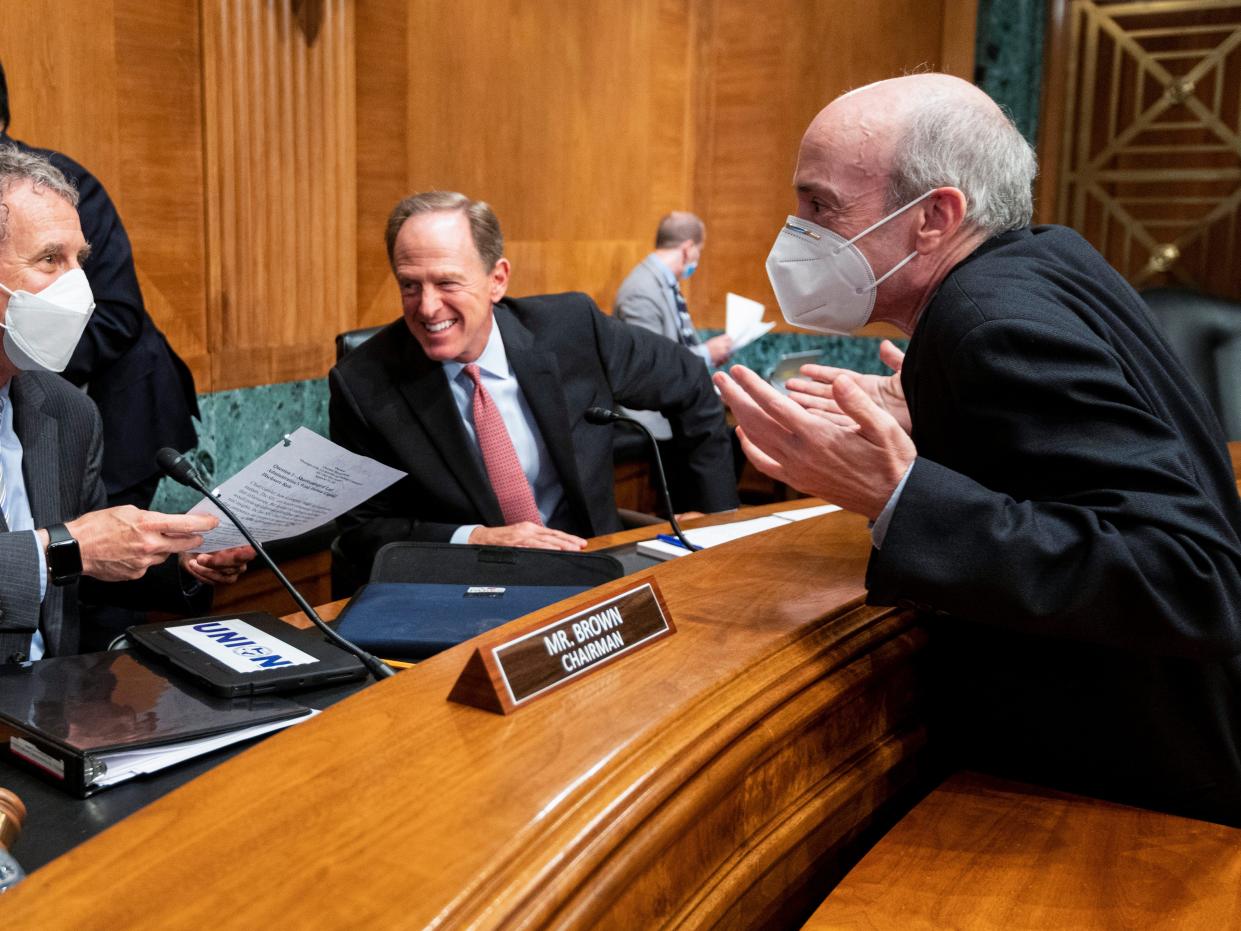Gary Gensler says most cryptos are securities, but some are more like gold — so the SEC and the CFTC should team up to regulate exchanges

SEC Chair Gary Gensler said while most cryptocurrencies are securities, some are more like "digital gold".
The SEC will talk to the CFTC about joint regulation of crypto exchanges, he said on Monday.
The CFTC already regulates the derivatives markets and oversees regulation of bitcoin and ether futures.
Most cryptocurrencies are essentially securities, but some, by nature are more like gold and, as such it should be up to the two largest US regulators to join forces to decide how oversight of the exchanges where they trade should work, the head of the Securities and Exchange Commission said on Monday.
"Crypto platforms currently list both crypto commodity tokens and crypto security tokens, including crypto tokens that are investment contracts and/or notes. Currently, the venues that the SEC oversees solely trade securities," SEC Chair Gary Gensler said, speaking at the University of Pennsylvania.
Gensler also said the rise of most crypto tokens has involved entrepreneurs raising money from the public, with the expectation of profits, which can be considered an investment contract, or security under US law.
"Some, probably only a few, are like digital gold; they may not be securities. Even fewer, if any, are actually operating like money."
Gensler went on to say that he has asked his staff to consider how best to register and regulate platforms where trading of both securities and non-securities is intertwined. The SEC has jurisdiction over assets such as stocks, while the Commodity Futures Trading Commission regulates the US derivatives, which covers futures and options in fixed income, foreign exchange, commodities and cryptocurrencies.
"In particular, I've asked staff to work with the CFTC on how we jointly might address such platforms that might trade both crypto-based security tokens and some commodity tokens, using our respective authorities," Gensler added.
Some exchanges, such as Sam Bankman-Fried's FTX, have pushed for the CFTC to take on a bigger role in regulating cryptocurrencies. While giving testimony to the US Senate in February Bankman-Fried outlined the work his company has done with the regulator around derivative offerings in the US and the role they play in regulating the cryptocurrency industry.
Indeed, last November FTX.US brought on board a former CFTC commissioner to oversee communications with the regulator as the company looked to work with regulators.
Furthermore, during the same February hearing the head of the CFTC, Rostin Behnam, told the US Senate that his organization stood ready to address the challenges facing the cryptocurrency industry in the US.
"The CFTC is well situated to play an increasingly central role in overseeing the cash digital asset commodity market," Behnam said
Behnam went on to note that while the CFTC's core responsibilities are around regulating the commodity derivatives market, several elements of the cryptocurrency industry suggest it would benefit from CFTC oversight.
Gensler said that ultimately, crypto exchanges needed to be regulated as stringently as traditional exchanges.
"These crypto platforms play roles similar to those of traditional regulated exchanges. Thus, investors should be protected in the same way," he said, before adding that exchanges "have millions and sometimes tens of millions of retail customers directly buying and selling on the platform without going through a broker."
Read the original article on Business Insider


